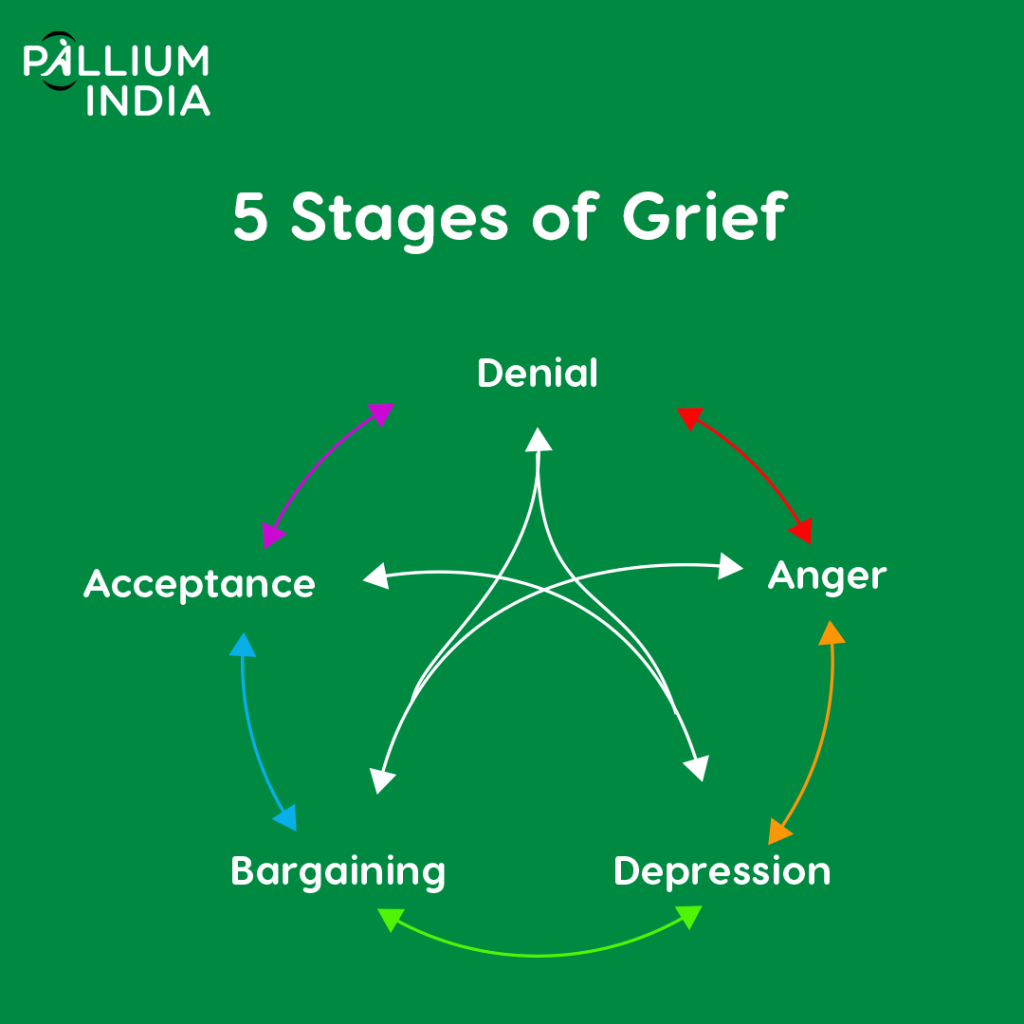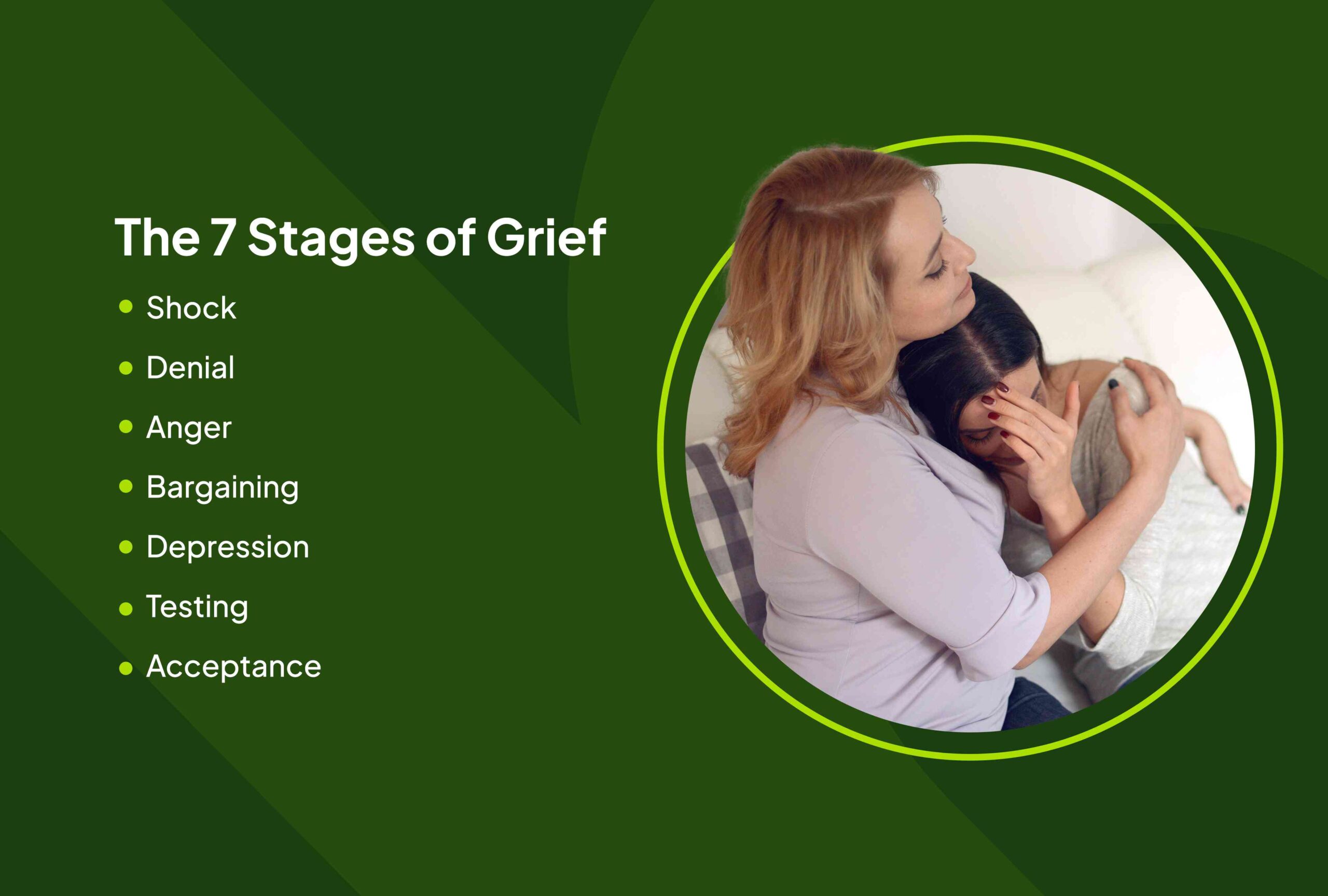Grief is a normal reaction to loss. It can happen when we lose someone we love. Grief can also occur after losing a pet or a job. Understanding the stages of grief can help us cope with these feelings. In this article, we will explore the five stages of grief.

Credit: palliumindia.org
Overview of the Grief Process
The process of grieving is unique for everyone. No two people grieve in the same way. Some may move quickly through the stages. Others may take a long time in one stage. Knowing the stages can help you understand your feelings better.
:max_bytes(150000):strip_icc()/4175361_color1-5c3b9069c9e77c0001c6c85f.png)
Credit: www.verywellmind.com
The Five Stages of Grief
In 1969, Elisabeth Kübler-Ross introduced the five stages of grief. These stages are:
- Denial
- Anger
- Bargaining
- Depression
- Acceptance
1. Denial
Denial is the first stage of grief. In this stage, people may refuse to believe the loss has happened. They might feel numb or shocked. This reaction helps to soften the blow of grief. It allows time to absorb the news.
Denial can also help protect us from overwhelming emotions. It is a temporary stage. Eventually, the reality of the loss will set in.
2. Anger
The second stage is anger. Once the denial fades, anger often takes its place. People may feel angry at the person who died. They might blame themselves or others. This anger can be intense and confusing.
Some may express their anger outwardly. Others may keep it inside. It is important to understand that feeling anger is normal. It is part of the healing process.
3. Bargaining
The third stage is bargaining. In this stage, people may try to regain control. They might think about what they could have done differently. They may say, “If only I had…” This stage often comes with feelings of guilt.
Bargaining is a way to make sense of the loss. It is a way to negotiate with fate. People may make promises to change if their loved one comes back.
4. Depression
The fourth stage is depression. This stage can feel heavy and dark. People may feel sad and empty. They may withdraw from friends and family. This is a natural response to loss.
In this stage, feelings of hopelessness may arise. It is important to seek help if these feelings become overwhelming. Talking to someone can help ease the burden of grief.
5. Acceptance
The final stage is acceptance. In this stage, people begin to find peace. They understand the loss and its impact on their life. Acceptance does not mean forgetting. It means finding a way to live with the loss.
People may start to make new memories. They may feel ready to move forward. This stage can take time, and that’s okay.
Understanding Grief Is Important
Understanding the stages of grief is essential. It helps us recognize our feelings. It also helps us understand others better. Everyone experiences grief differently. Some may skip stages or go back to them.
Grief can also come in waves. Some days may feel better than others. On tough days, it is important to be kind to yourself.
How to Cope with Grief
Coping with grief can be challenging. Here are some tips to help:
- Talk to someone: Sharing your feelings can help.
- Write it down: Keeping a journal can be a good outlet.
- Stay active: Physical activity can boost your mood.
- Join a support group: Connecting with others can provide comfort.
- Take care of yourself: Eat well and rest when needed.
When to Seek Professional Help
Sometimes, grief can feel too heavy to bear. If you find it hard to cope, seeking help is a good idea. A therapist can provide support and guidance. They can help you navigate your feelings. Remember, asking for help is a sign of strength.
Frequently Asked Questions
What Are The Stages Of Grief?
The stages of grief typically include denial, anger, bargaining, depression, and acceptance. Each stage reflects a different emotional response.
How Long Do The Stages Of Grief Last?
The duration varies for everyone. Some may move through the stages quickly, while others take months or years.
Can You Skip Stages Of Grief?
Yes, individuals may skip stages or experience them in a different order. Grief is a personal and unique journey.
What Triggers The Stages Of Grief?
Triggers can include anniversaries, memories, or reminders of loss. Each person may respond differently to these triggers.
Is Grief A Linear Process?
No, grief is not linear. People often cycle through stages multiple times, experiencing emotions in varying sequences.
Conclusion
Grief is a natural part of life. Understanding the stages of grief can help us cope. It is okay to feel a mix of emotions. Remember that healing takes time. Be gentle with yourself as you navigate through your feelings. Each step you take is a part of your journey.
Whether you are experiencing grief or supporting someone who is, know that you are not alone. Reach out, talk, and share your journey. Together, we can find a way through the pain and into healing.

